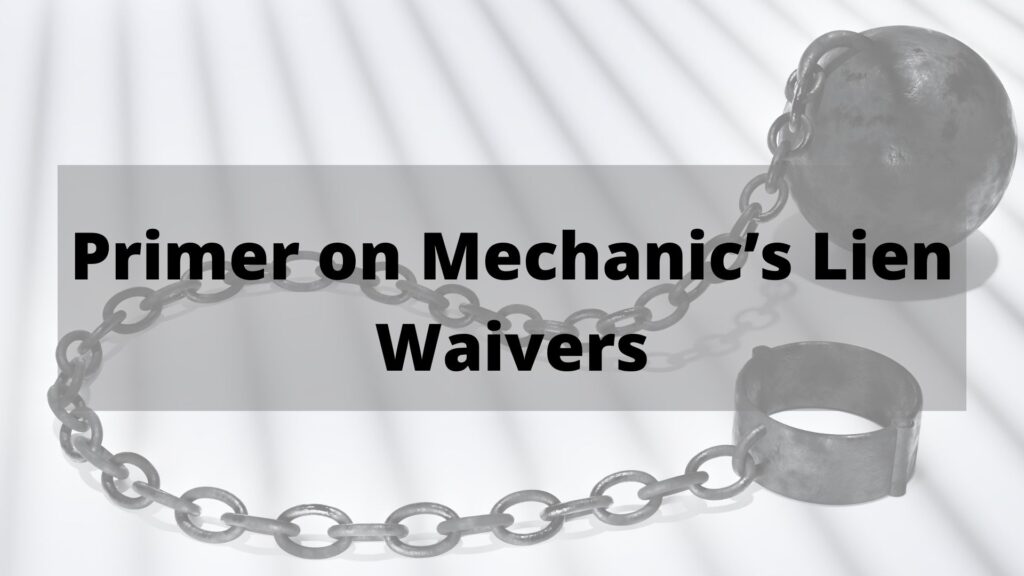
Regardless of whether a construction project is residential or commercial, general contractors are expected to guard owners against mechanic’s lien claims by subcontractors. Under Lien Law Section 34, it is illegal for your contracts to provide that subcontractors or suppliers waive their mechanic’s lien rights altogether. Thus, the only way to limit mechanic’s lien claims is for your subcontractors and suppliers to execute mechanic’s lien waivers in connection with payments.
The first step to defending against mechanic’s lien claims is to have your subcontractors and suppliers regularly execute partial lien waivers during the course of the project. This is typically done with each payment application and may be required by your contract with the owner. When the project is complete, final lien waivers should be executed by all subcontractors and suppliers confirming specifically that they have been paid in full.
In addition to using partial lien waivers over the course of your project, you can use the language in your lien waivers to provide additional security against mechanic’s lien claims. Useful provisions to include in a lien waiver including the following:
- Have the subcontractor or supplier agree to promptly pay or discharge any mechanics’ liens filed in the future by its own sub-subcontractors or suppliers; and
- Have the subcontractor or supplier agree to indemnify both you and the project owner for any costs incurred by reason of defending mechanics’ lien claims, including without limitation attorneys’ fees and costs of bonding liens.
Aside from including the provisions discussed above, it is also essential to ensure that subcontractors and suppliers provide completed and notarized lien waivers. Do not, under any circumstances, have your own staff notarize signatures that are delivered electronically or by facsimile. Notarizing a signature without the personal appearance of the signer leaves you open for claims by the signer that the signature is fraudulent or was notarized fraudulently.
Mechanic’s lien waivers are one of the most important documents used to facilitate the completion of construction projects without lien claims, and like anything else, they can be used to your advantage if you follow the correct procedures and use thorough forms. An experienced construction law attorney can provide thorough lien waiver forms that protect your rights to the fullest extent possible.
The author, John Caravella Esq., is a construction attorney and formerly practicing project architect at The Law Office of John Caravella, P.C., representing architects, engineers, contractors, subcontractors, and owners in all phases of contract preparation, litigation, and arbitration across New York and Florida. He also serves as an arbitrator to the American Arbitration Association Construction Industry Panel. Mr. Caravella can be reached by email: [email protected] or (631) 608-1346.
The information provided on this website does not, and is not intended to, constitute legal advice; instead, all information, content, and materials available on this site are for general informational purposes only. Readers of this website should contact their attorney to obtain advice with respect to any particular legal matter. No reader, user, or browser of this site should act or refrain from acting on the basis of information on this site without first seeking legal advice from counsel in the relevant jurisdiction. Only your individual attorney can provide assurances that the information contained herein – and your interpretation of it – is applicable or appropriate to your particular situation. Use of, and access to, this website or any of the links or resources contained within the site do not create an attorney-client relationship between the reader, user, or browser and website authors, contributors, contributing law firms, or committee members and their respective employers.

